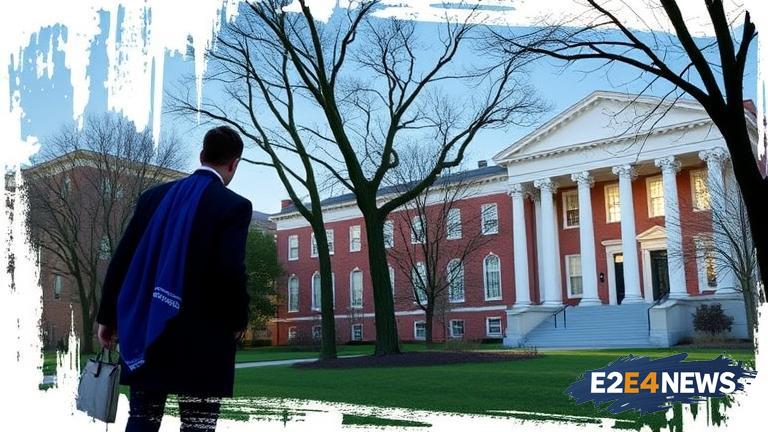In a move to address financial challenges, Drexel University and Jefferson University in Philadelphia have announced plans to lay off staff and faculty members. The decision comes as the universities face declining enrollment and revenue shortfalls. Drexel University, a private research university, has been struggling with financial difficulties, including a decline in tuition revenue and increasing expenses. The university has announced plans to lay off approximately 300 staff members, which is about 5% of its workforce. The layoffs will affect various departments, including administrative and academic units. Jefferson University, another private institution, is also implementing layoffs, although the exact number of affected employees has not been disclosed. The university has cited financial constraints and a need to restructure its operations as the reason for the layoffs. The layoffs at both universities have raised concerns among students, faculty, and staff members, who are worried about the impact on academic programs and services. The universities have assured that the layoffs will not affect student services, but some students have expressed concerns about the potential impact on their education. The financial struggles faced by Drexel and Jefferson universities are not unique, as many higher education institutions in the United States are grappling with similar challenges. The decline in enrollment and revenue has been attributed to various factors, including demographic changes, increasing competition, and rising costs. The universities have been exploring ways to address these challenges, including cost-cutting measures, revenue-generating initiatives, and strategic partnerships. Despite the challenges, both universities have reaffirmed their commitment to providing high-quality education and research opportunities. Drexel University has announced plans to invest in new academic programs and research initiatives, while Jefferson University is focusing on expanding its online education offerings. The universities have also emphasized their commitment to supporting affected employees, including providing outplacement services and career counseling. The layoffs at Drexel and Jefferson universities serve as a reminder of the financial pressures facing higher education institutions in the United States. As the universities navigate these challenges, they must balance their financial needs with their academic mission and commitment to students. The situation highlights the need for innovative solutions and strategic planning to ensure the long-term sustainability of higher education institutions. In the coming months, the universities will be closely watched as they implement their plans and work to address the financial challenges. The impact of the layoffs on the universities’ academic programs and services will be closely monitored, and students, faculty, and staff members will be looking for reassurance that the universities are committed to their well-being and success. The financial struggles faced by Drexel and Jefferson universities are a wake-up call for the higher education sector, highlighting the need for institutions to be proactive and adaptable in the face of changing circumstances. As the universities move forward, they will need to prioritize transparency, communication, and collaboration to ensure that all stakeholders are informed and supported throughout the process. The situation also underscores the importance of government support and funding for higher education, as well as the need for institutions to diversify their revenue streams and explore new business models. Ultimately, the ability of Drexel and Jefferson universities to navigate their financial challenges will depend on their ability to innovate, adapt, and prioritize their academic mission and commitment to students.





